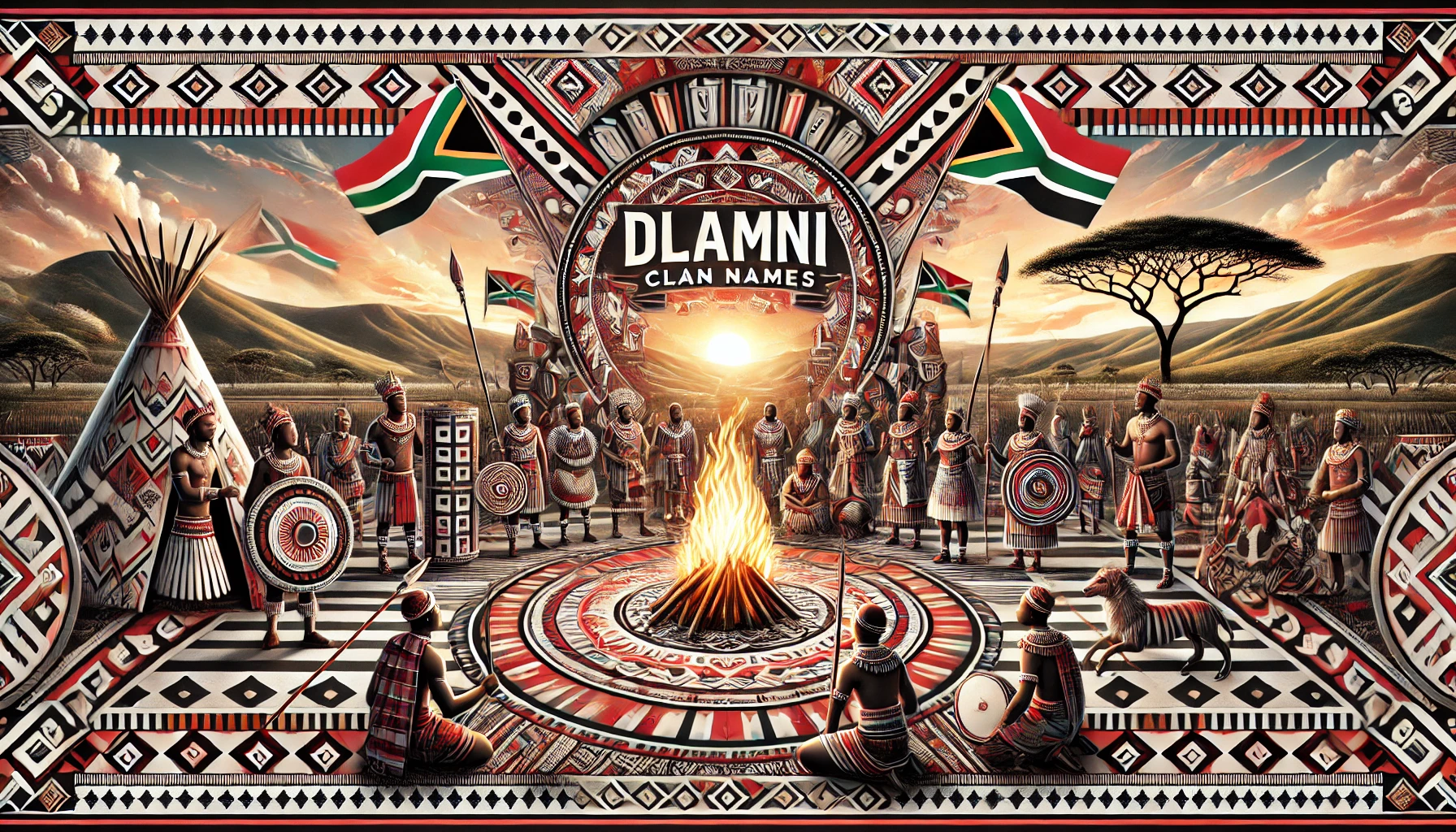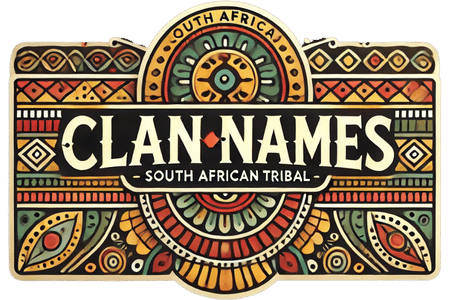Dlamini Clan Names | Izithakazelo zakwa Dlamini

Exploring the Dlamini Clan
Introduction to the Dlamini Clan
The Dlamini clan is one of the prominent clans in Zulu culture, with a rich history and deep cultural significance. Understanding the Dlamini clan names, or izithakazelo, provides insight into the lineage and heritage of the Dlamini people. We take pride in exploring the roots and traditions that define our family identities.
The Dlaminis are known for their vibrant traditions and cultural practices that have been passed down through generations. By studying the Dlamini clan names, we gain a deeper appreciation of our ancestors and the ways in which they contribute to our current cultural fabric.
Significance of Clan Names
Clan names, or izithakazelo, hold great importance in Zulu culture. These names are not merely identifiers but serve as a link to our ancestry and heritage. For the Dlamini clan, these names represent respect, honor, and a sense of belonging.
Understanding the significance of Dlamini clan names helps us appreciate the following:
- Ancestral Connection: Clan names connect us to our forebears, ensuring that their legacy is remembered and honored.
- Cultural Identity: Clan names play a crucial role in preserving our unique cultural identity.
- Social Cohesion: Using clan names fosters unity and brotherhood within the community.
Exploring these names, along with their meanings and evolution, provides a comprehensive understanding of the Dlamini clan’s heritage. Clan names not only identify us but also tell stories of our origins, achievements, and the wisdom of our ancestors.
By researching and preserving Dlamini clan names, we ensure that future generations remain connected to their roots and continue to uphold our rich cultural traditions.
Understanding Izithakazelo zakwa Dlamini
What are Izithakazelo?
Izithakazelo, also known as clan praises or totems, are an integral part of Zulu culture. These praises are recited to honor the ancestors and to evoke pride within the family or clan. While they are often recited at ceremonial events and gatherings, they also play a role in everyday identity and interactions among the Zulu people. The Dlamini clan, like many other Zulu clans, has its own unique set of Izithakazelo, which reflect the clan’s history, values, and beliefs.
Importance of Izithakazelo zakwa Dlamini
Izithakazelo zakwa Dlamini hold great significance in preserving the cultural identity and heritage of the Dlamini clan. These praises serve multiple functions:
- Cultural Identity: They act as a means of connecting members of the Dlamini clan, reinforcing their shared ancestry and heritage.
- Historical Record: They provide insight into the historical narrative and lineage of the Dlamini clan, often encapsulating historical events and notable ancestors.
- Social Cohesion: They foster a sense of unity and belonging among clan members, encouraging mutual respect and cooperation.
- Cultural Transmission: They are a crucial mechanism for passing down cultural knowledge and traditions from one generation to the next.
The value of Izithakazelo goes beyond mere words; they encapsulate the essence of the Dlamini clan. As we delve deeper into the history and evolution of Dlamini clan names, we begin to appreciate how these elements contribute to the rich tapestry of Zulu heritage.
For more on the significance of clan names and Dlamini lineage, ensure to read our sections: Role of Izithakazelo in Preserving Cultural Identity and Resources for Exploring Dlamini Clan Names.
Traditional Dlamini Clan Names
In exploring the Dlamini clan, understanding traditional clan names and their meanings offers insight into cultural heritage and identity.
Traditional Dlamini Clan Names and Meanings
The Dlamini clan, like many other Zulu clans, has a rich tapestry of names that signify various aspects of their history, values, and lineage. These names, passed down through generations, carry deep meanings and reflect the clan’s sense of pride and belonging.
| Clan Name | Meaning |
|---|---|
| Bhungane | One who causes dread |
| Mlangeni | From the place of reeds |
| Sinqobile | We have conquered |
| Thabisa | One who brings joy |
By understanding these names and their meanings, we can appreciate the clan’s heritage and the values they cherish. Each name tells a story and holds significance within the community, helping to preserve their cultural identity.
Evolution of Clan Names
As with many cultural practices, the names within the Dlamini clan have evolved over time. Various factors, such as intermarriage with other clans, migrations, and changes in societal structures, have influenced these names. This evolution reflects the dynamic and adaptive nature of cultural identity.
| Time Period | Influences on Names |
|---|---|
| Pre-Colonial Era | Traditional and ancestral origins |
| Colonial Era | Forced migrations and cultural blending |
| Post-Colonial Era | Modernization and adaptation |
Understanding the ways in which clan names have evolved helps us appreciate the resilience and adaptability of the Dlamini clan. It also underscores the importance of preserving these names as vital links to their ancestry and cultural roots.
Exploring the traditional names of the Dlamini clan and their evolution offers a window into the rich heritage of the Zulu people. It helps us understand the significance of clan names and their role in preserving cultural identity.
For further information on tracing lineage through clan names, see our section on researching Dlamini lineage.
Preserving Cultural Heritage
Role of Izithakazelo in Preserving Cultural Identity
Izithakazelo, or clan praises, play a pivotal role in the preservation of cultural identity within the Dlamini clan. These clan praises are more than just names; they are a rich tapestry of history, values, and traditions passed down through generations, encapsulating the essence of the clan’s heritage.
We find that izithakazelo serve as a mnemonic device, helping members recall their lineage and ancestral accomplishments. This sense of shared history fosters a strong community bond, reinforcing the identity and unity of the Dlamini people. By reciting these praises, we honor our forebears and keep their stories and legacies alive.
Izithakazelo are often used in various cultural rituals and ceremonies, acting as a touchstone for the Dlamini clan’s social and spiritual life. Whether in weddings, funerals, or communal gatherings, the invocation of clan names serves to ground us in our collective past, ensuring that our cultural roots remain well-nourished and vibrant.
Passing Down Clan Names through Generations
The process of passing down clan names through generations is a crucial aspect of maintaining our cultural heritage. In the Dlamini clan, this tradition is meticulously observed to ensure that each new generation retains a connection to their ancestry and the broader community.
Clan names are typically taught to children from a young age, often through oral tradition. Elders play a key role in this process, sharing stories and teaching the meanings and significance of each name. This practice not only imparts knowledge but also instills a sense of pride and belonging.
The following table illustrates the role of different members in passing down clan names:
| Role | Responsibility |
|---|---|
| Elders | Teaching clan praises, recounting historical narratives |
| Parents | Reinforcing knowledge, encouraging use of izithakazelo in daily life |
| Community Leaders | Facilitating ceremonies, promoting cultural education |
| Schools | Including clan history in curriculum, cultural clubs |
Through these collective efforts, the Dlamini clan names continue to thrive, serving as a powerful link between past, present, and future generations. This ongoing transmission of knowledge helps us maintain our cultural integrity while adapting to contemporary societal changes.
For those interested in researching Dlamini lineage and exploring the breadth and depth of Dlamini clan names, a wealth of resources and communal knowledge awaits. By delving into these aspects, we can gain a deeper appreciation and understanding of our heritage and identity.
Researching Dlamini Lineage
Exploring one’s ancestry can be a deeply rewarding journey, offering insights into family history and cultural identity. For those belonging to the Dlamini clan, tracing ancestry through clan names offers a meaningful way to connect with their roots.
Tracing Ancestry through Clan Names
Clan names, or Izithakazelo, play a crucial role in tracing one’s lineage. These names often carry historical significance and offer clues about the origins of the clan. For the Dlamini clan, Izithakazelo serve as a link to their past, helping individuals piece together their familial connections.
By examining the meaning and origin of clan names, we can uncover valuable information about our ancestors. For example, certain names may be associated with specific regions or historical events, offering context about the family’s history. Additionally, the use of oral traditions and storytelling helps preserve these names and the stories behind them.
Here’s a table displaying some traditional Dlamini clan names and their meanings:
| Clan Name | Meaning |
|---|---|
| Dlamini | Royalty |
| Hadebe | Bravery |
| Ngwane | Leadership |
| Mkhonto | Warrior |
Understanding the significance of these names is essential for anyone researching their Dlamini lineage. It allows us to appreciate the rich cultural heritage and the values upheld by our ancestors.
Resources for Exploring Dlamini Clan Names
There are several resources available to aid in the exploration of Dlamini clan names. These resources can help us dive deeper into our family’s history and preserve our cultural legacy for future generations.
-
Family Elders: Speaking with family elders is one of the most effective ways to gather information about clan names. Elders often possess a wealth of knowledge and can provide details about the origins and meanings of specific names.
-
Genealogical Records: Official records, such as birth and marriage certificates, may contain valuable information about clan names and ancestry. These documents can help us trace our lineage back through multiple generations.
-
Oral Histories: Many families maintain oral histories that are passed down through generations. These stories often contain references to clan names and significant events, providing context for our family’s history.
-
Community Resources: Local cultural organizations and community centers may offer resources and support for researching clan names. These organizations often host events and workshops focused on cultural heritage and lineage tracing.
By utilizing these resources, we can gain a deeper understanding of our Dlamini ancestry and ensure that our clan names are preserved for future generations. Exploring the rich history behind Izithakazelo zakwa Dlamini helps us connect with our roots and strengthens our cultural identity.
For further reading on the importance of preserving cultural heritage and the role of Izithakazelo, check our section on Role of Izithakazelo in Preserving Cultural Identity.
